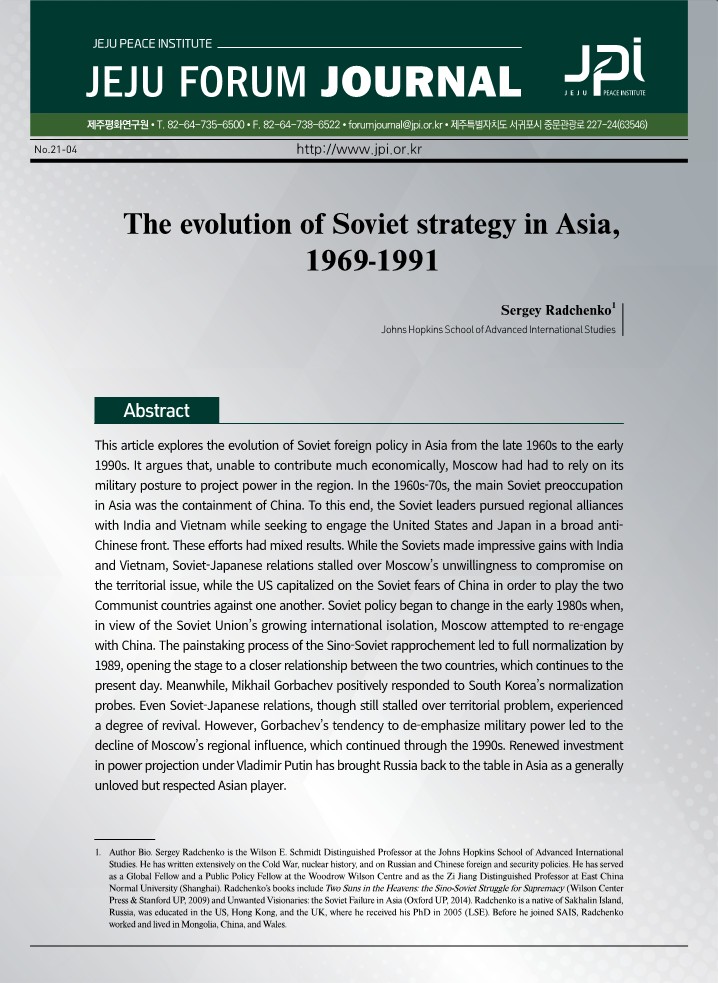This article reviews Soviet foreign policy towards Asia from 1969 to 1991. For much for the Cold War the focus of Moscow’s foreign policy agenda was actually in Europe. This was because the Soviet Union was primarily a European power, and the Soviet leaders regarded themselves as historically and culturally “European.” Moscow’s relationship with Asia was historically that of a European imperialist power, and the legacy of this experience was that the Soviets wanted to shape Asia, perhaps even to lead in Asia, but they certainly did not see themselves as a properly Asian player. They have always been on the outside looking in. Asia’s cultural “otherness” was compounded by Soviet security concerns. By the 1960s – as a result of the Sino-Soviet split – China emerged as the most significant threat to the USSR in the East. Dealing with this threat became the key preoccupation of Moscow’s Asian policy for much of the period under discussion.
The article shows how Moscow coped with China in the 1970s – early 1980s, including by leveraging its relations with other regional players like India and Vietnam. This policy underwent change in the 1980s, primarily because of the Soviet Union’s international isolation and tensions in Soviet-American relations. The article then explores the continuities and change and Gorbachev’s approach to Asia, including his overtures to Japan and South Korea. The conclusion outlines how Moscow’s Asian policy changed since the collapse of the USSR, and in which ways it stayed in the same.
저자
Author Bio. Sergey Radchenko is the Wilson E. Schmidt Distinguished Professor at the Johns Hopkins School of Advanced International Studies. He has written extensively on the Cold War, nuclear history, and on Russian and Chinese foreign and security policies. He has served as a Global Fellow and a Public Policy Fellow at the Woodrow Wilson Centre and as the Zi Jiang Distinguished Professor at East China Normal University (Shanghai). Radchenko’s books include Two Suns in the Heavens: the Sino-Soviet Struggle for Supremacy (Wilson Center Press & Stanford UP, 2009) and Unwanted Visionaries: the Soviet Failure in Asia (Oxford UP, 2014). Radchenko is a native of Sakhalin Island, Russia, was educated in the US, Hong Kong, and the UK, where he received his PhD in 2005 (LSE). Before he joined SAIS, Radchenko worked and lived in Mongolia, China, and Wales.
